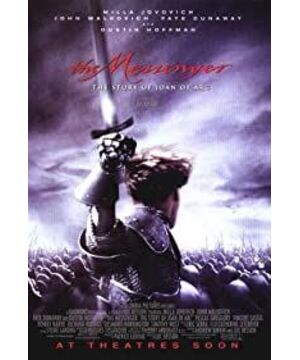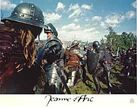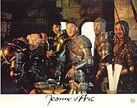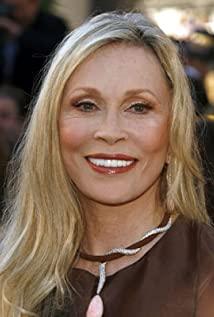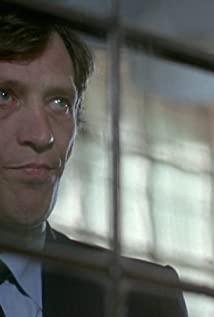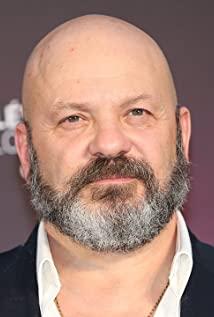The source of the failure of Luc Besson's exploration of Joan of Arc :
The original big director on the Internet would also make bad films.
I didn't look at this film with a critical eye, even a little religious in the beginning. Because I know the story of Joan of Arc, but not much, only limited to the famous painting that appeared in the history book.
What I want to see is what kind of power is supporting a girl who is only eighteen or nineteen years old to lead the French army to fight.
At first, it seemed that the explanation given by Luc Besson was religion. Maybe he thought that he could find a reasonable explanation and pave the way for Joan of Arc's death in history to "spread heretical ideas"? In this way, the film is a kind of respect for history, respect for historical facts?
In this way, however, in Joan of Arc there is a great dynamic of that religious fanaticism.
For a period of time, the director's pictures also tried to convince us that Joan of Arc really saw God, and that she was really the messenger sent by God to save France. So, when she was young, she would feel the strange wind, hear the sound of clouds rolling, pick up a sword with a cross carved on it, see a beautiful and holy little boy, and hear those who gave her the sacredness Whispers of mission.
Therefore, in a small trick played by the French prince for the selfish consideration of preventing assassins from being assassinated, she was able to successfully win, recognize the prince who had never met, and won the crown prince's trust.
Then she rode a war horse and set off with a flag.
The flag has a certain symbolic meaning here, because Joan of Arc always asked in battle: "Where is my flag?", because the flag is the representative of Joan of Arc, and Joan of Arc is the messenger of God, so the flag was Has it given religious meaning, and even become a totem in people's hearts? But later in the film, the director seems to have thrown away the clues that he tried to highlight. Even when Joan of Arc was arrested, there was also a lack of a special picture of the flag-representing Joan's stubborn, fanatical religious worship support force of destruction.
What they saw afterwards was the rightful distrust of a young girl, which made Joan cut off her hair angrily and yelled at them. Her reason is that the voice of God is about to blow my head off and you guys are going to retreat. No, fight, because this is God's will.
So, fight. The bloody scene, this kind of gore is nothing like the gore at the beginning of Spielberg's "Saving Private Ryan." Although it shows the war of the 15th century, the blood is naked: stones, hot oil, killed heads, Joan of Arc's fearful eyes, people covered in blood.
There is no doubt that the French won, so there is the worship and hope of Joan of Arc by military generals and ordinary soldiers. It seems that her every move represents the will of God. This is difficult to accept for a non-religious person like me who can use rational thinking, but it is understandable.
The crown prince was crowned, content with the status quo, and wanted to solve the problem through negotiation. It is very much like the Southern Song Dynasty, which is more than comfortable. When the French first betrayed Joan of Arc and Joan of Arc fell into the hands of the British, I thought of Yue Fei.
At this point in the story, except for those parts that have strong hints of gods, it's not bad.
But just when Joan of Arc was imprisoned, and the interrogation accounted for a quarter of the film, the director tried to explore Joan of Arc's inner world. Arranged the appearance of a mysterious "image": he was not Satan, not God, not that holy and beautiful little boy. He is them at the same time. He is torturing Joan of Arc: Why do you think that what you see is the truth? There are many explanations for the occurrence of an event, why do you only choose that God gave you a sword and not the other? In fact, everything you do is according to your own will, and in the name of God is just an excuse for you to achieve your own goals.
During such torture, Joan of Arc was on the verge of collapse, and the foundations of all beliefs began to shake strongly. It can be said that she did not let the interrogators who represented the church in Chinese costumes interrogate her, but let this "image" be driven to a desperate situation. And who can guarantee that even this illusory "image" was not imagined by Joan of Arc?
According to the director's logic, it seems that Joan of Arc's behavior can only be explained by her mental delusions.
Therefore, even if in reality, there is still a kind bishop who gave Joan a chance to save Joan, this "image" still reappears for Joan to "release the Tao". Joan of Arc seemed to understand, and finally died in the fire.
The director's discussion has basically failed. Obviously, Luc Besson didn't want to make an epic film to simply praise Joan of Arc, but the more he goes to the back, the more he doubts and does not understand Joan of Arc to the audience; He didn't want Joan of Arc's behavior to be dressed in a religious cloak, and he was beginning to give people a hint of a strong religious atmosphere; and obviously, he wanted to explore Joan of Arc's inner world in a deeper way, and he used a long A quarter of the length seems to express to the audience that the shadow of childhood in Freud's "psychoanalytic theory" has a huge impact on later life, and finally let Joan of Arc admit that what he sees is false, and Religion is irrelevant, so the heroic Joan of Arc becomes a neurotic.
In such doubts and puzzles, such words were written. I'd rather be too shallow and too critical, even if I really don't understand.
View more about The Messenger: The Story of Joan of Arc reviews


